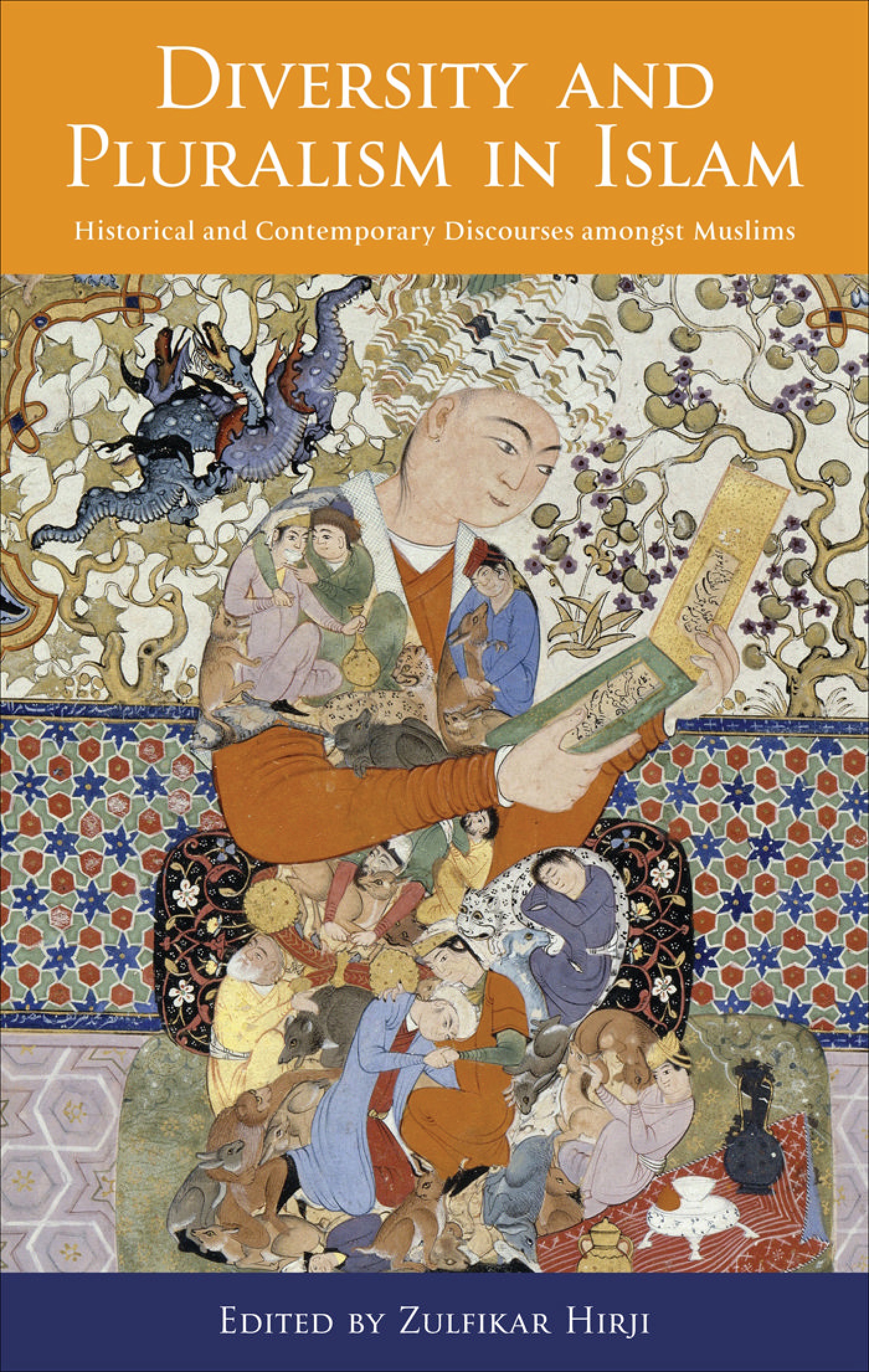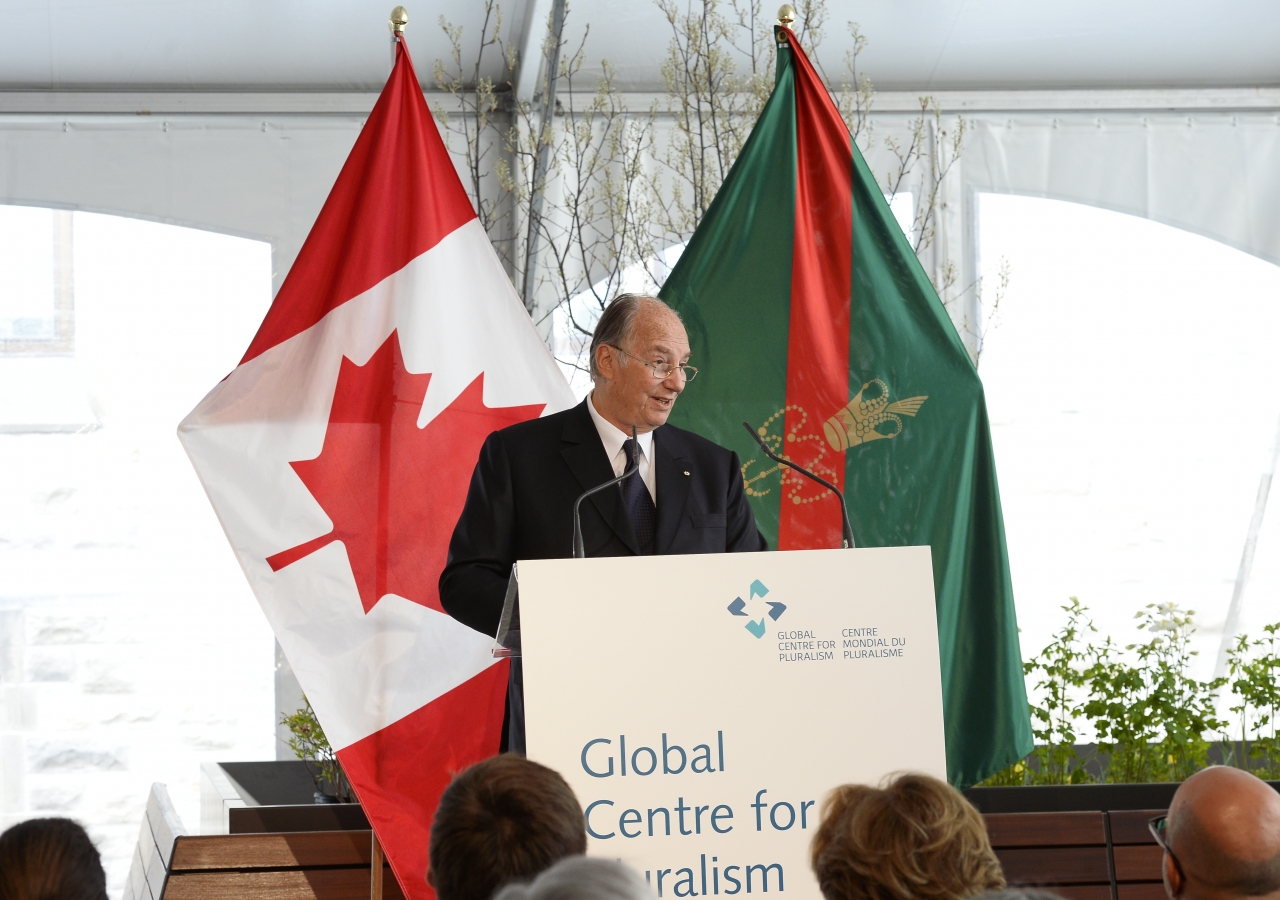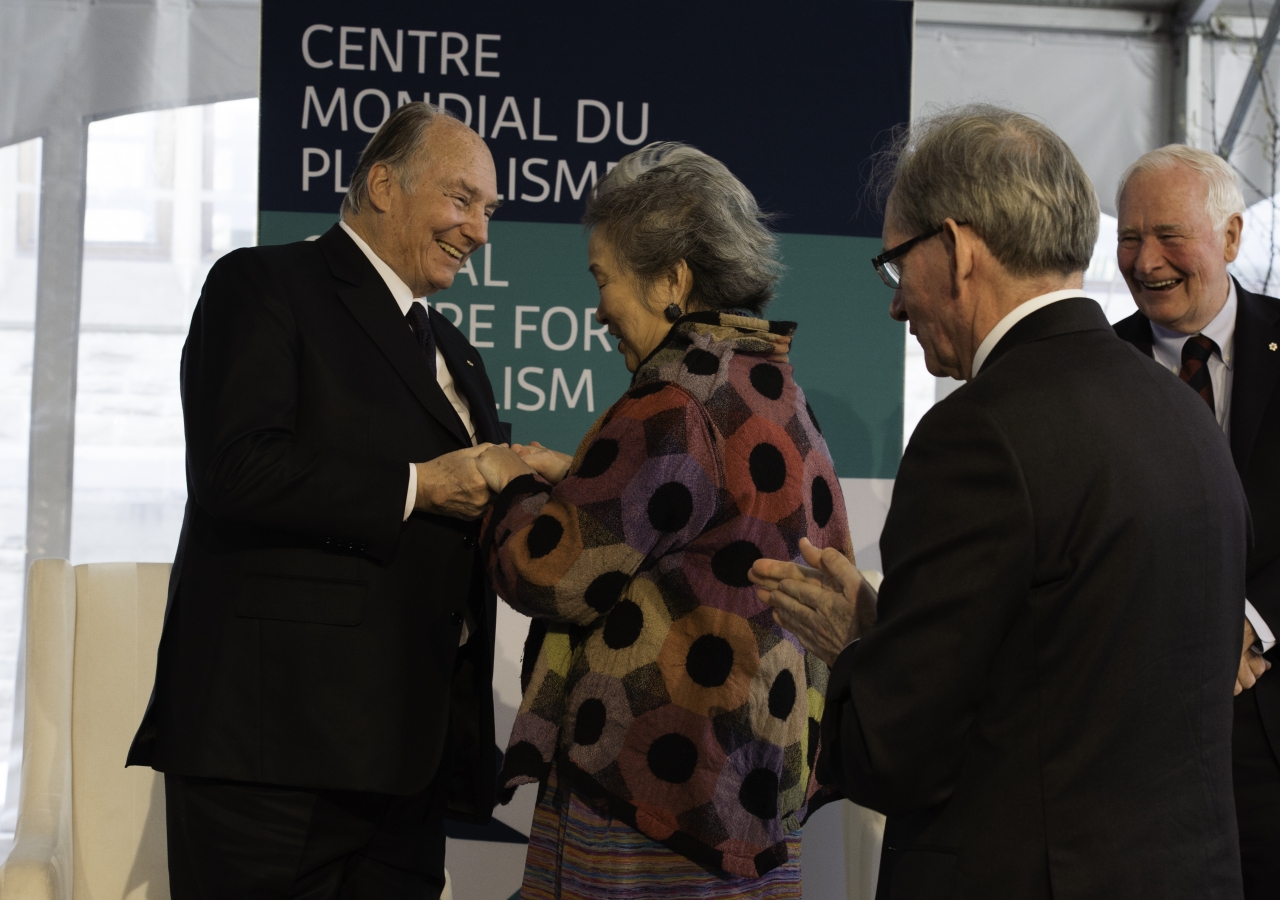Diversity. Tolerance. Human rights. Democracy. Pluralism. Cosmopolitanism. Words that are related and often used interchangeably, yet have nuances of meaning and implication. We read above that humanity was created from a single soul, and that diversity and differences were ordained. Further, the Qur’an states that “We made you into nations and tribes that ye may know one another.” (49:13). This exhortation requires us to engage respectfully with other cultures and traditions and, in today’s complex modern societies, to adopt a new concept, “cosmopolitanism.” But people the world over seem to have difficulty with the “Other.” Tribal wars, international conflicts, civil unrest, ethnic and religious violence, even genocide, have been evident in our lifetimes and illustrate that people resist the notion of living in harmony with others.
Gone are the days of geographical and physical boundaries that isolated people and cultures in homogeneous clusters; today’s societies are multi-ethnic and multi-religious, with people travelling across frontiers, invited or not. Dealing with these changes requires empathy, tolerant policies, and respect for differences. Unfortunately, they pose challenges to certain segments of populations everywhere, with ethnic and religious chauvinism, political polarization, marginalization, and societal exclusivism appearing to be more in vogue than harmony and common purpose.
Most countries have signed the Universal Declaration of Human Rights but the reality is that the rights of many around the world, including women and minorities, are denied or suppressed. And rights are an abstract ideal if there is no culture of tolerance. According to Beverley McLachlin, the Chief Justice of Canada, three things are needed to maintain the norm of tolerance: “acceptance of the inherent human dignity of every person; inclusive institutions and cultural attitudes in civil society; and the rule of law.” Some—or all—of these conditions are conspicuously absent in many countries, to the detriment of their citizenry.
“The challenges to tolerance are manifold—in both the developed and the developing world. The revolutionary impact of globalization means that many who never met before now intermingle continually...peoples who once lived across the world from one another, now live across the street. But societies which have grown more pluralistic in makeup, are not always growing more pluralistic in spirit. What is needed—all across the world—is a new ‘cosmopolitan ethic’—rooted in a strong culture of tolerance.” -From Mawlana Hazar Imam’s address to the Tutzing Evangelical Academy upon receiving the Tolerance Award, Tutzing, Germany, May 20, 2006.
While tolerance is necessary for individual rights and social cohesion, is it sufficient? Tolerance alone is inadequate in itself, as it merely indicates others will let one practice one’s faith or cultural traditions; it does not necessarily lead to encounters, dialogue, understanding or constructive engagement; segregation and ghettoes in many cities are illustrative of how minorities can be excluded from full participation in economic and social activities.
Pluralism is a relatively new term that indicates a society’s conscious decision to embrace diversity as a positive social feature. Its success requires agreement on shared values that ensure the citizenry can express its vision for the future, even if it cannot coalesce in a common approach; that anyone may form associations of like-minded people for cultural or other purposes; that an impartial and independent judiciary and media are evident; and that institutions of the state and civil society adopt these concepts and value, promote, and protect them. All this requires, of course, a robust civil society and the rule of law, features not found everywhere.
Impediments to a pluralistic and well-functioning democracy include poverty, lack of access to education, discrimination, and intolerance, conditions that can exclude certain groups from effective economic and political participation and representation, as well as denying them their rights and a voice.
Pluralist societies do exist today, and Mawlana Hazar Imam cited Canada as an example. But he has also noted their existence in the past, in reference to Egypt, saying: “I have a special interest in this story; it concerns my ancestors, the Fatimid Caliphs, who founded the city of Cairo 1,000 years ago. They were themselves Shia in an overwhelmingly dominant Sunni culture, and for nearly two centuries they led a strong pluralistic society, welcoming a variety of Islamic interpretations as well as people of Christian, Jewish and other backgrounds.” He offered another example also, that of the seven-century period of Muslim rule in Spain.
“The world we seek is not a world where difference is erased, but where difference can be a powerful force for good, helping us to fashion a new sense of cooperation and coherence in our world, and to build together a better life for all.” --Mawlana Hazar Imam, LaFontaine-Baldwin Lecture, Toronto, October 15, 2010.
Intercommunal pluralism is an objective that western societies accept generally, in the interests of social harmony and egalitarianism, despite recent statements by some political leaders and groups in the US and in Europe; yet, ironically, narrow identity politics and claims of religious exclusivity threaten the very existence of certain constituents of the Ummah. The history that allowed the faith and its intellectual tradition to flourish is being discarded and forgotten as intracommunal pluralism is rejected in favor of a monochromatic vision of the world.
Cosmopolitanism, as an ideal, can be traced back 2,400 years to the Greek philosopher, Diogenes. Asked where he was from, he replied, “I am a citizen of the world (kosmopolitês).” This was a revolutionary concept for the time, as a citizen’s identity was grounded in allegiance to a city-state. Despite the centuries since, some cling to a narrow nationalism or a singular identity. We witness globalization as well as polarization, more communication as well as confrontation—a fragmented world, the subject of the Imam’s speech at Harvard. In his remarks, he suggested that what is needed at this time is a “cosmopolitan ethic,” that recognizes the universal and the particular equally, “our common humanity and our distinctive identities,” that can “bring beauty to the larger social fabric.” The tighter the weave, the stronger the fabric, where individual strands link to enrich all.
The philosopher George Santayana had remarked that, “Those who cannot remember the past are condemned to repeat it.” Unfortunately, even if they do know it, some continue to exploit differences to create discontent and division. An enlightened populace may be the antidote to such attempts, for if there is one thing a truly democratic and pluralistic society should not tolerate, it is intolerance itself. And that requires an educational system that addresses cultural understanding, as well as leaders, political and religious, who share this vision.
diversity_and_pluralism_in_islam_zul_hirji-1.jpg

Diversity and Pluralism in Islam: Historical and Contemporary Discourses Amongst Muslims, Zulfikar Hirji, I.B Tauris, Publishers
Institute of Ismaili Studies
All the concepts noted at the beginning of this commentary are important in determining one’s quality of life. And while pluralism may not be a panacea for all the ills of a society, its absence may inhibit a truly inclusive, participatory democracy. We would be well-served to recall the words of Adrienne Clarkson, the former Governor- General of Canada and a Member of the Board of Trustees of the Global Centre for Pluralism: “Life at its best exists in cooperative, sharing and balanced relationships with other lives. This is the interdependence we call belonging.”
Words to remember, as we all belong to one species, no matter our different cultures or geographies, and to one planet; we have a collective responsibility to ensure the former enjoys peace and prosperity, and that the latter survives, in spite of ourselves.
_____________________
Suggested further reading:
1. Cosmopolitanism: Ethics in a World of Strangers; Kwame Anthony Appiah, W.W. Norton and Company, New York, N.Y., 2007.
2. Diversity and Pluralism in Islam; Ed. Zulfikar Hirji, I.B.Tauris Publishers, London, New York, 2010.









